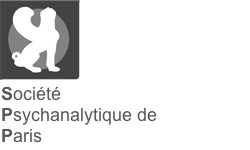| Material Type: | Article : printed text |
| Title: | La référence à l'histoire et la méthode psychanalytique : construction, invention, mémoire et vérité dans le travail clinique (2008) |
| Authors: | / Fausto PETRELLA , Author |
| In : | Revue française de psychanalyse (vol. 72, n° 5, 2008) |
| Article on page: | pp. 1557-1567 |
| Languages: | French |
| Keywords : | Épistémologie ; Construction ; Mémoire ; Vérité historique |
| Abstract: |
-- Résumé : Durant la période postmoderne, la psychanalyse a souvent mis l'accent sur les aspects interactifs et exploratoires de l'analyse où la construction devient surtout invention du passé. Ces changements risquent de minimiser la réalité historique ainsi que les différences conceptuelles et méthodologiques entre le vrai, le faux et le conjectural. Préoccupations très vives du temps de Freud et de la première moitié du XXe siècle. Parallèlement, on a paradoxalement valorisé la référence à la dimension traumatique (souvent ramenée et associée à un passé historique ou préhistorique) comme catégorie d'importance fondamentale pour l'expérience humaine et pour les théories qui doivent l'expliquer. Mon intervention vise à souligner et discuter un niveau où l'épistémologie psychanalytique coïncide avec l'épistémologie de l'histoire et de l'historiographie. -- Abstract : It seems that during the post-modern period psychoanalysis essentially emphasised the interactive and exploratory aspects of analysis, in which construction is essentially and invention of the past. These alterations threaten, however, to minimise both the importance of historical reality and the question of conceptual and methodological differences between truth, falsehood and the conjectural, this latter question being a major preoccupation both in Freud's time and during the first half of the 20th century. Reference to the traumatic dimension (often relating to and associated with a historic or prehistoric past) was at the same time emphasised in so far as the latter was deemed to constitute an extremely important category both in human experience and in the theories that served to explain the latter. My paper aims to underline and reconsider the level at which psychoanalytical epistemology can be considered to coincide with the epistemology of history and historiography. -- Kurzfassung : In der postmodernen Periode wurde in der Psychoanalyse oft eine besondere Betonung auf die interaktiven und explorativen Aspekte der Analyse gelegt, bei der die Konstruktion vor allem zu einer Erfindung der Vergangenheit wird. Diese Veränderungen bergen die Gefahr, dass die Bedeutung dessen, was zu Freuds Zeiten und in der ersten Hälfte des 20. Jahrhunderts noch von grundsätzlicher Bedeutung war, nämlich die historische Realität und die konzeptuellen, methodologischen Unterschiede zwischen dem Wahren, dem Falschen und dem Mutmalichen, minimisiert wird. Gleichzeitig wurde paradoxerweise der Bezug auf die traumatische Dimension als fundamentale Kategorie für die menschliche Erfahrung und die Theorien, die sie erklären sollen, aufgewertet und oft mit einer historischen oder prähistorischen Vergangenheit in Beziehung gesetzt. Mein Beitrag zielt darauf ab, eine Ebene, auf der die psychoanalytische Epistemologie und die Epistemologie der Historie und der Historiographie zusammenfallen, in den Vordergrund zu rücken und zur Diskussion stellen. -- Resumen : Durante el periodo posmoderno, el psicoanálisis hizo hincapié a menudo en los aspectos interactivos y exploratorios del análisis en el que la construcción se vuelve sobretodo invención del pasado. Dichos cambios corren el riesgo de minimizar la realidad histórica como así también las diferencias conceptuales y metodológicas entre lo verdadero, lo falso y lo conjetural. Preocupaciones candentes en tiempos de Freud y en la primera mitad del siglo XX. Paralela y paradójicamente se ha valorizado la referencia de la dimensión traumática (a menudo conducida y asociada a un pasado histórico o prehistórico) como categoría de importancia fundamental para la experiencia humana y para las teorías que tienen que explicarlo. Mi intervención intenta subrayar y discutir un nivel en el cual lo epistemológico psicoanalítico coincide con lo epistemológico de la historia y de la historiografía. -- Abstract in italiano : Durante il periodo post-moderno, la psicoanalisi ha spesso messo l'accento sugli aspetti interattivi e di esplorazione dell'analisi in cui la costruzione diventa soprattutto invenzione del passato. Questi cambiamenti rischiano di minimizzare la realtà storica nonchè le differenze concettuali e metodologiche tra il vero, il falso e il congetturale. Preoccupazioni molto vive fin dal tempo di Freud e dalla prima metà del XXe secolo. Parallelamente si è paradossalmente messo in valore il riferimento alla dimensione traumatica (spesso ricondotta ed associata ad un passato storico o preistorico) come categoria di importanza fondamentale per l'esperienza umana e per le teorie che devono spiegarla. Il mio intervento mira a sottolineare e discutere un livello in cui l'epistemologia psicoanalitica coincide con l'epistemologia della storia e della storiografia. |
| Contents note: | Bibliographie, Résumé |
Copies (5)
| Barcode | Call number | Media type | Location | Section | Status |
|---|---|---|---|---|---|
| 20008062 | RFP | Revue | BSF Paris | Salle de lecture : Revues en français | Available |
| 20008061 | RFP | Revue | BSF Paris | ψ Réserve : Périodiques | Not for loan |
| 50002906 | B01 | Revue | Lyon | Bib. GLPRA | Not for loan |
| 06002205 | RFP | Revue | St-Etienne BFP | Bib. Francis Pasche | Available |
| 08001041 | ARM/05 | Revue | Toulouse | Bib. Toulouse | Available |





